Month: October 2019
THE LOW-COST MEXICAN AIRLINE WILL OPERATE 7 WEEKLY FLIGHTS AND SHOWS THE GREAT POTENTIAL FOR GROWTH OF THIS ROUTE BETWEEN THE CAPITAL CITIES OF ECUADOR AND MEXICO.
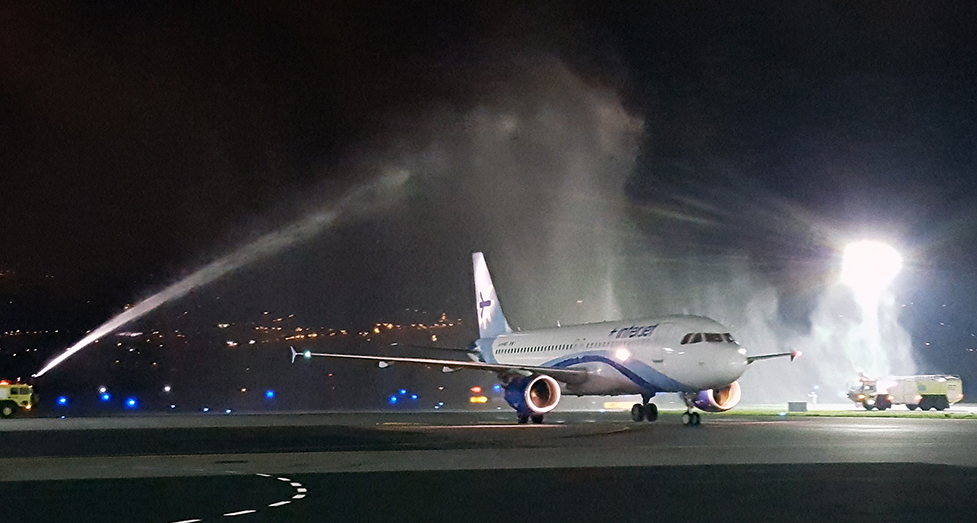
- The low-cost Mexican airline will operate 7 weekly flights and shows the great potential for growth of this route between the capital cities of Ecuador and Mexico.
Connectivity between Quito and Mexico City has significantly increased with the arrival of Interjet, the low-cost Mexican airline that began operations this Tuesday, October 29. Interjet offers seven direct weekly flights from Quito International Airport, served by an Airbus 320.
For Corporación Quiport, the concessionaire of the airport, the addition of Interjet is a very positive development for this route, as the new operator will invigorate the market and help regulate air ticket prices.
“There is no doubt that the Mexican government’s decision to eliminate the visa requirement for Ecuadorian citizens gave us a strong push to bring Interjet to Quito”, says Andrew O’Brian, President and CEO of Corporación Quiport. “The exchange of passengers between the two destinations is key to the route’s success, and the work to promote tourism that Ecuador can carry out in Mexico is very important” he adds.
For Julio Gamero, Executive Commercial Director of Interjet, “as we begin this new chapter, this direct route between Mexico City and Quito is a sign of the significant growth we are seeing in the region. Interjet brings an innovative price offering, while maintaining the service’s high standards of quality and safety. We are very pleased to have a partner like Quiport, who has supported us to make our arrival in Quito a reality”.
For Sandro Ruiz, General Manager of Empresa Pública Metropolitana de Servicios Aeroportuarios (EPMSA), “air connectivity continues to improve. With the addition of Interjet, Quiport continues to increase the number of airlines at Mariscal Sucre International Airport, a sign of confidence in the country which encourages tourism and business”.
EXPERIENCE THE INNOVATIVE DREAMLINER EFFECT FROM QUITO AIRPORT
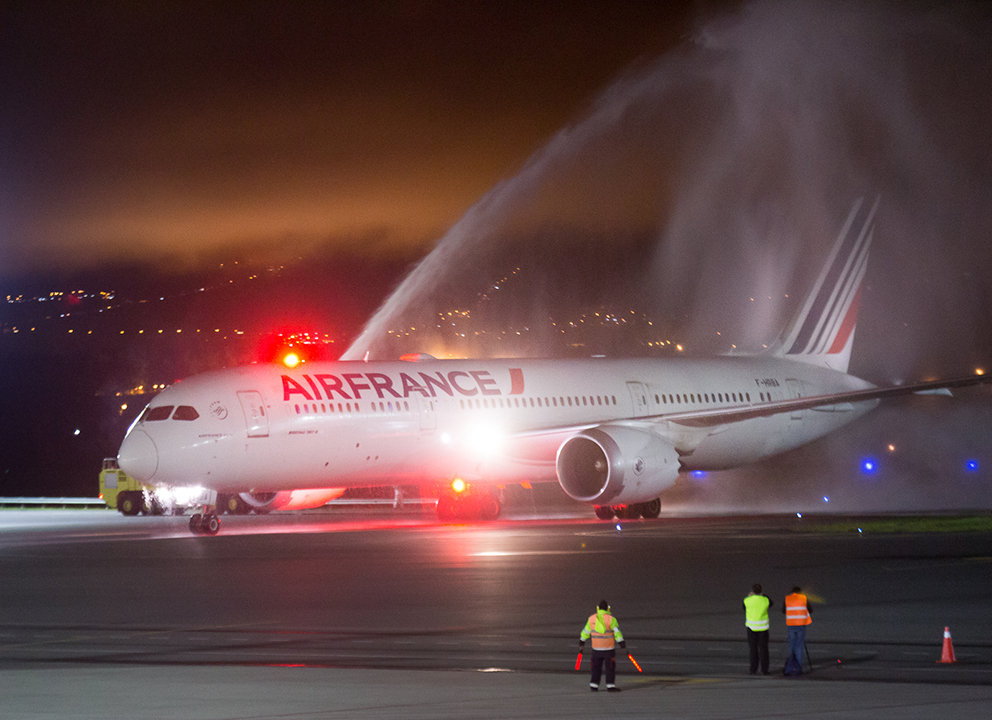
From October 27 at Quito Airport, passengers can enjoy an innovative experience onboard the Dreamliner 787-900, operated by Air France. The modern aircraft arrived in Quito for the first time yesterday from Paris Charles de Gaulle Airport.
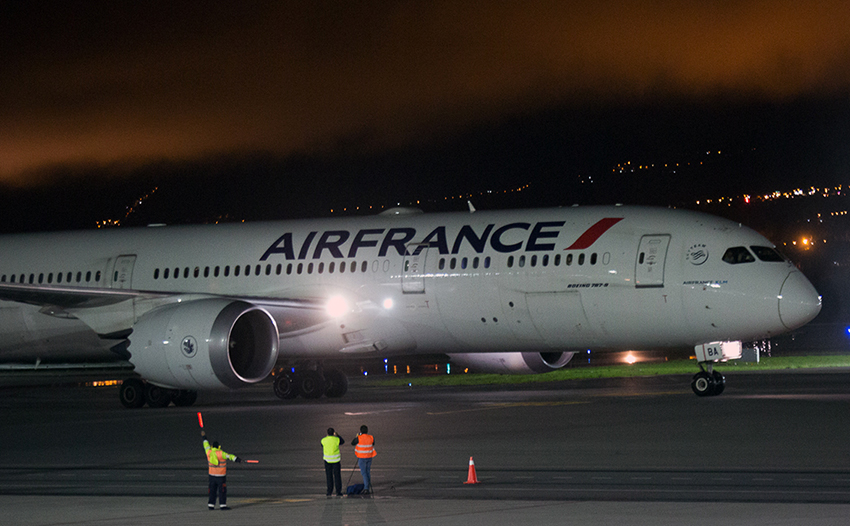
This new service with the Boeing 787-900 is very important for Corporación Quiport. It is a new generation aircraft that provides more comfort and is very efficient, offering Ecuadorian passengers a new flying experience. Air France’s decision shows the importance it places on developing its market in Ecuador, says Andrew O´Brian, CEO of Quiport.
The Boeing 787, with capacity for 276 passengers, is the most modern aircraft in Air France’s fleet, offering multiple benefits to its passengers to make long journeys more enjoyable. It is equipped with three cabin classes: business with 30 seats; premium economy with 21 seats, and economy with 225 seats.
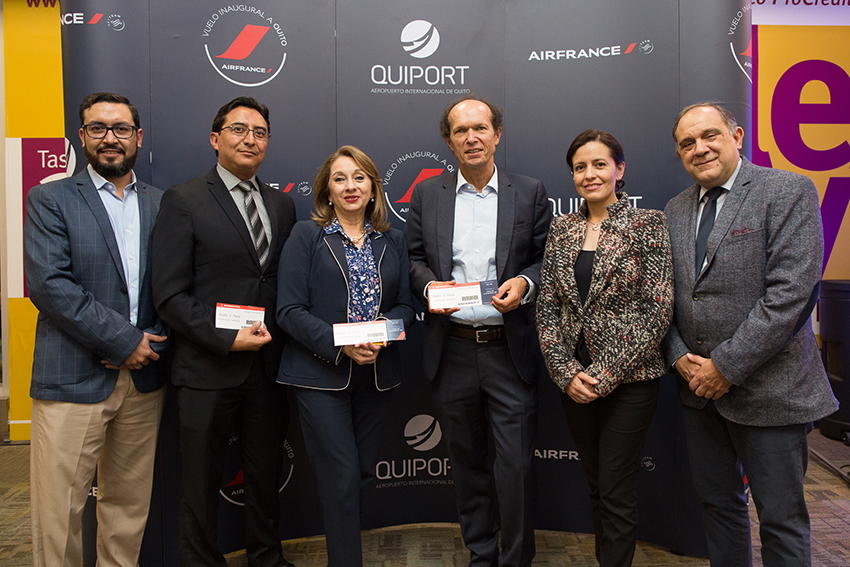
Air France operates three direct flights between Quito and Paris Charles de Gaulle Airport on Tuesdays, Fridays and Sundays.
Elisa Dhuvettere, Regional Commercial Director of Air France, emphasizes that the airline has full faith in the tourism potential of Ecuador, which is why the airline has decided to bring in the new generation aircraft to serve the country.
From Quito Airport, passengers will have a more comfortable experience with enhanced seats and 30% larger windows compared to other similar aircraft. The Dreamliner also offers a lower cabin altitude and better humidity, ensuring a more comfortable and pleasant journey.
Sandro Ruiz, General Manager of Empresa Pública Metropolitana de Servicios Aeroportuarios, says “we are very pleased with Quiport’s work to increase connectivity, as shown by Air France’s decision to send one of the most modern aircraft to serve our skies”.
The evening reception to welcome the Dreamliner ended with words from Rosi Prado de Holguín, Minister of Tourism, who stated the importance of emphasizing that Ecuador is a peaceful country, and the arrival of the Dreamliner is a show of trust and reflects the potential for tourism we have and need.

AIRPORTS COUNCIL INTERNATIONAL LATIN AMERICA – CARIBBEAN MEETS IN BOGOTÁ
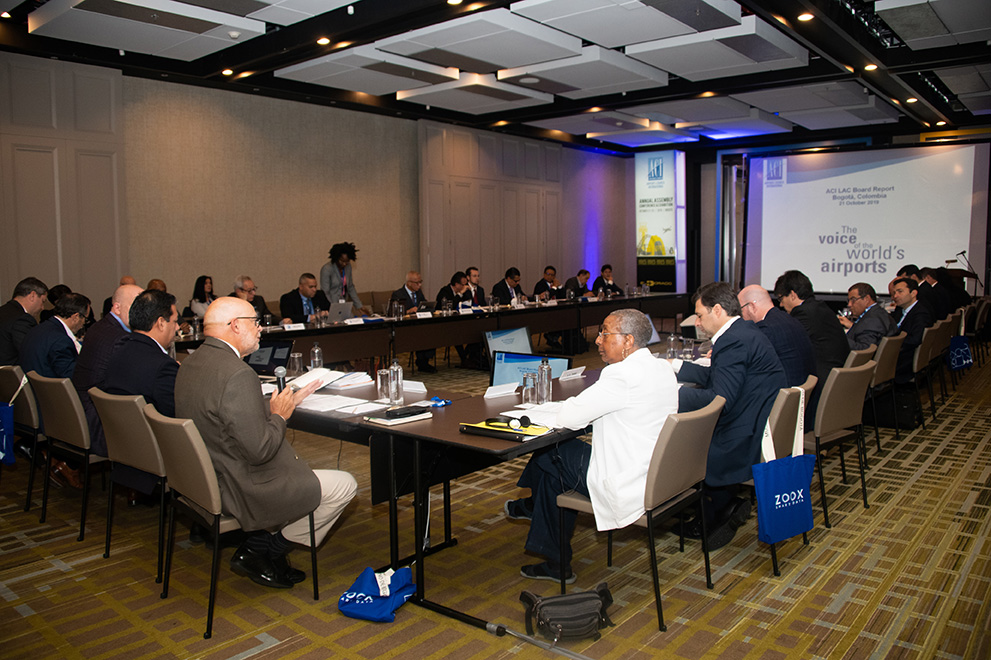
The average growth rate in passenger traffic in Latin America between January and June 2019 is 5.6% per annum. This was announced by the Airports Council International Latin America – Caribbean (ACI-LAC) during today’s Board meeting in Bogotá.
Andrew O’Brian, President of ACI-LAC, explained that this growth is greater than the global average of 3.6% per annum. “The region is registering higher growth rates than other areas of the world. This is because in Latin America and the Caribbean the air transport sector still has much room to develop. The large distances that must be covered, together with the lack of other efficient means of transport, creates a scenario in which aviation will contribute significantly to linking cities and countries”, he said.
The meeting discussed other important topics for the development of the industry in the region, such as the Airport Excellence Program in Airport Security, and the Program for Improving the Passenger Experience in Airports. Corporación Quiport has been a pioneer in these programs on a regional level and the experience in Quito airport has served as a model to replicate in other airports.
ACI World and ACI-LAC hold high level events
Airports Council International at global level (ACI-World) and its regional chapter in Latin America and the Caribbean (ACI-LAC) are meeting at several events from yesterday until October 23 in the Colombian capital for discussions on the future of the airport industry.
Yesterday the ACI World CEO Forum took place, when the top representatives of more than 40 global airports debated topics of great interest for the industry. Mr. Andrew O’Brian, President and CEO of Quiport, represented the Latin America and Caribbean region as President of ACI-LAC within this group of leading global airports. The objective was to highlight the vision and the proposals developed in Latin America and the Caribbean.
The meeting discussed highly topical subjects such as defining the position of airports towards climate change and developing a joint strategy which leads the airports to a carbon neutral footprint by 2050.
The meeting also discussed the need to increase air space capacity by optimizing the current capacity, and by new procedures. This is one of the issues that could limit the growth of airports.
The event continues tomorrow with the start of the ACI-LAC General Assembly attended by 350 representatives from the region’s airports.
CARGO OPERATIONS AT THE AIRPORT CONTINUED DURING THE PROTESTS
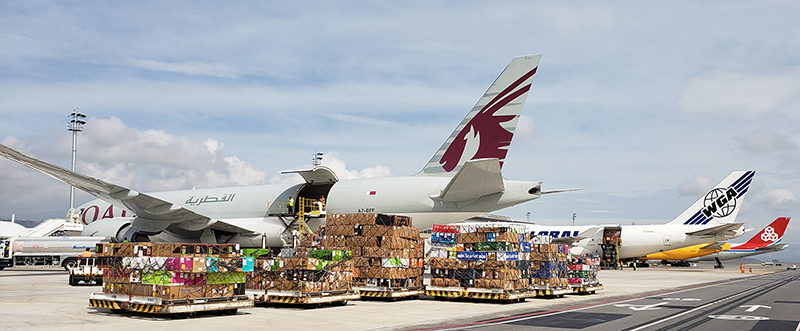
Cargo exports continued from Mariscal Sucre Airport despite the difficult situation faced in the country, and particularly the flower industry, during the protests and indigenous mobilization which ended recently. The cargo agencies at Tabacarcen and the palletizers at the airport’s export terminal continued to operate and flights which landed at the airport were dispatched.
In total, 23 cargo flights were affected from October 7 – 13, out of a total of 60 flights that were scheduled during this period. Fifteen flights were cancelled, three were rescheduled for a later date and five were delayed.
There was a 40% drop in the volume of flowers processed for export during the protests. Shipments of flowers were transported to the cargo agencies and the cargo terminal in convoys, avoiding road closures.
The four palletizer companies (Pertraly, Servipalet, Novacargo and Aronem) continued to operate by making changes to work shifts wherever possible and supporting their staff when it was necessary to extend shifts to guarantee the continuity of flower exports.
Eduardo Emanuele, General Manager of Pertraly, explains “we received cargo with a certain irregularity and processed and shipped it using the aircraft that were operating during this time. Given the delicate situation, we had to intensify security and controls for the cargo”.
“Stopping operations was never an option and we continue to work to the highest standards of quality and safety, as expected. We were always prepared to handle the cargo which continued to arrive from the flower sector to the cargo agencies and on to our facilities. From this perspective, cargo operations at Quito Airport were not interrupted” he concludes.
Santiago Gómez de la Torre, General Manager of Tabacarcen where 70% of the cargo agencies that handle flowers operate, confirms that “during the strike that lasted from October 9 – 13, Tabacarcen operated 24 hours a day. Regarding operations, we have a contingency plan in place, so we never have to stop offering our services to the clients and users in Quito and the province, particularly importers, flower growers and cargo agencies.
He continues, “we are pleased to have been able to persevere in a time of crisis and this is all thanks to our ongoing training and commitment in these matters. We constantly communicated and coordinated with security and law enforcement agencies, who supported and protected us, to provide reassurance to the community despite the circumstances in the country. Although this was a difficult time for the whole country, cargo continued to arrive, and we never stopped receiving it with our and our clients’ operations. Our employees showed great commitment to the country and, together with well-provisioned emergency logistics including beds, food and games as a distraction, we were able to offer an unrestricted service”.
REPORT ON THE STATUS OF OPERATIONS AT THE QUITO INTERNATIONAL AIRPORT
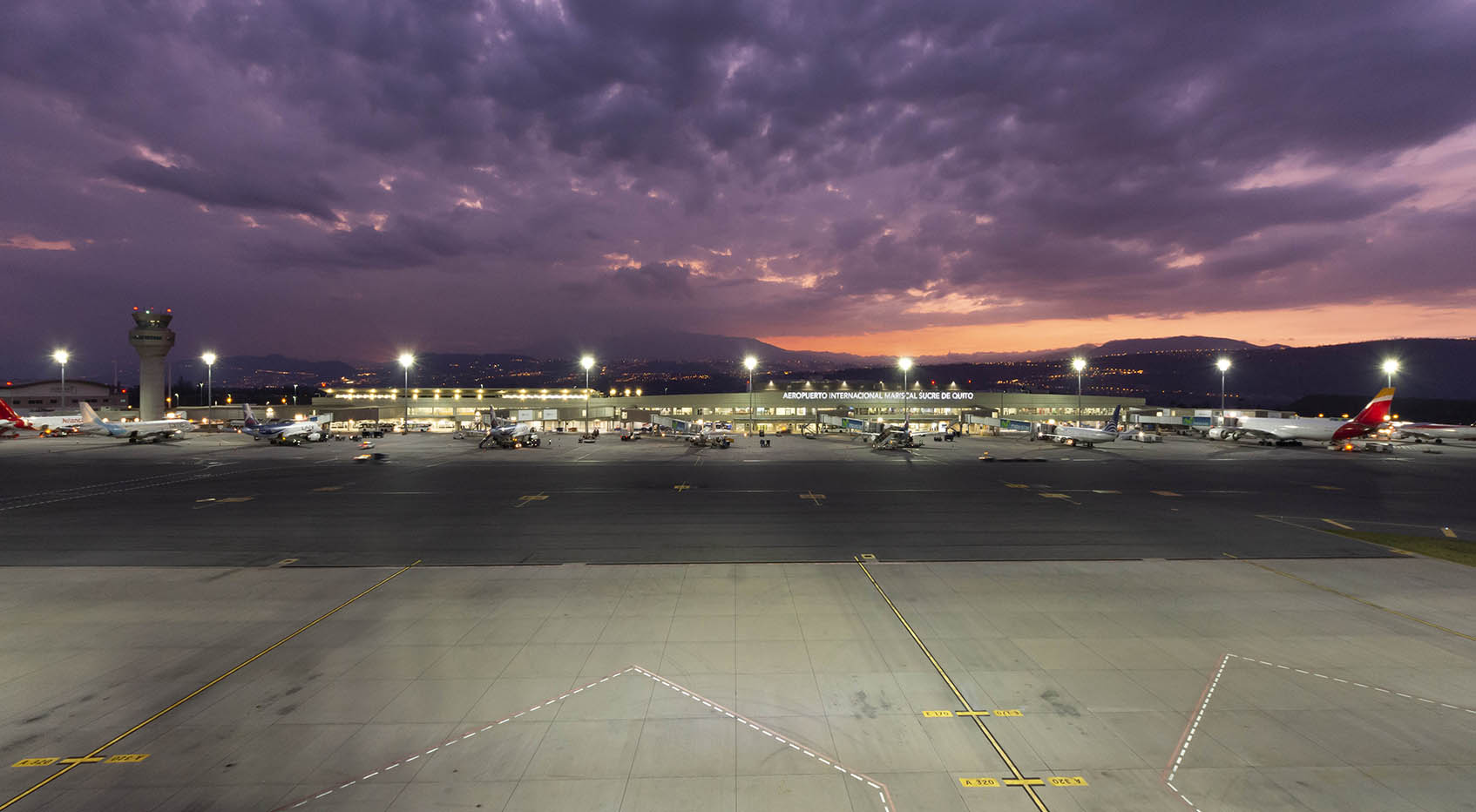
Corporación Quiport informs that the operations of the Quito International Airport have remained open during the previous days of strike and there have been no cancellations or deviations of flights as of Saturday, October 5 as a result of the protests underway in the city and country.
Corporación Quiport keeps a constant coordination with the Municipality of Quito, the National Government, the Metropolitan Public Company of Airport Services and the General Directorate of Civil Aviation, as well as with all public and private entities that provide service and operate at the airport, in order to define the most appropriate actions to guarantee the continuity of all services at the Quito airport and protect the safety of passengers, users and employees, as well as airport facilities.
Many passengers are arriving at the airport up to 24 hours in advance of their flights in fear of the possibility of a new street closure. Corporación Quiport is serving them with snacks and hot and cold beverages and offers sleeping bags to those passengers who have decided to spend the night in the terminal so that their stay is more bearable.
Andrew O’Brian, President and CEO of Corporación Quiport, said that “in these difficult times that Quito and Ecuador are going through, Quiport and all the airport operators working tirelessly to ensure that the aerial gateway to the city remains open and fully operational, fulfilling the commitment assumed with the city and the country”.
We ask the citizens to inform themselves through the official channels about the state of the access roads to the airport, as well as with their airlines to know more details about the status of the flights. We request passengers on canceled flights not to commute to Quito airport and to communicate directly with their airline.
